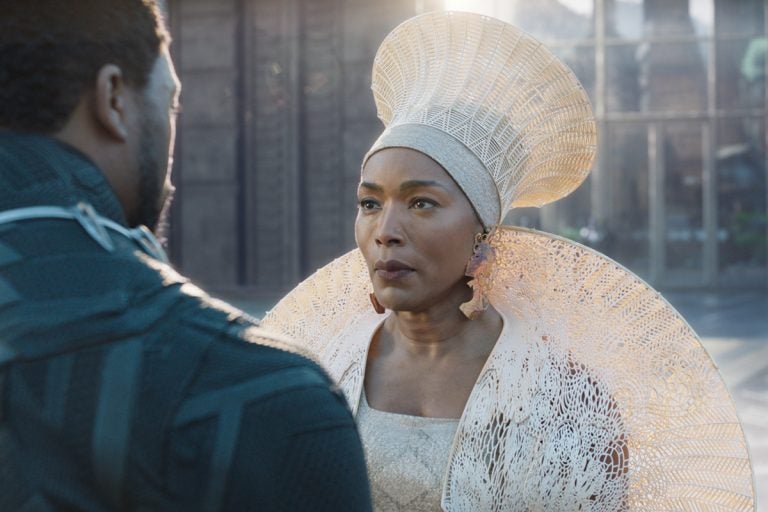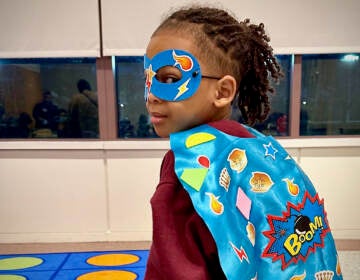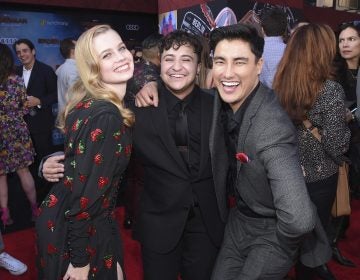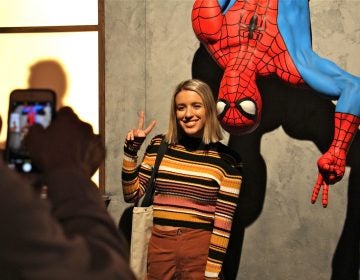The magnificence of ‘Black Panther’ is in its re-imagining of Africa
Never has a Hollywood blockbuster film captured Africa and her people in such rich, layered, multitudinous ways.

This image released by Disney-Marvel Studios shows Chadwick Boseman and Angela Bassett in a scene from "Black Panther." (Disney/Marvel Studios via AP)
“Dad, when you lived in Ghana, did lions ever walk into your village, walk to your hut and try to eat you?” I asked my father one Saturday afternoon shortly after spending the morning leisurely watching some of my favorite cartoons.
“No, Timothy. The only lions I ever saw in Africa were in the zoo,” he responded tersely. “Africa is not like that. I didn’t live in a village; I lived in a city. And Accra is a city, just like the one we live in now.”
As he abruptly left the room, I could perceive his angst, but it would take me years to fully comprehend it.
Two halves of home
My father immigrated to the United States from his beloved Ghana in the early 1970s, landing first in Worcester, Massachusetts, then finding his way to Memphis, Tennessee, where he eventually met and married my mother. He came to the U.S. as a university student in his early 20s and experienced a troubling measure of bigotry, racism, and xenophobia. Despite this, he passed on relics of his culture to me and my younger sister, though he was reticent toward fully immersing us in the traditions of his native Accra.
As a child, I understood my identity as an African-American, even if I could not fully appreciate the gravity of having within me two “feuding ancestries conjoined by a hyphen.” I was born in Memphis, like my mother, making Memphis home. My father was born in Accra. Those two halves made up my whole. Memphis I knew; Accra I did not. So my father’s stories of “back home” often riveted me, even the ones he might not have intended for me to hear.
“Black Panther,” screenwriter and director Ryan Coogler’s soaring foray into the mythical nation of Wakanda, the home of the Marvel Universe’s pioneering black superhero, similarly begins with stories from back home. N’Jadaka (later known as the menacing Erik Killmonger) asks of his father N’Jobu, “Baba, tell me a story.” N’Jobu wistfully obliges, telling his son of the great Central African nation of Wakanda, the most advanced civilization on earth, which has never been conquered or colonized, and which has an endless supply of vibranium, an invaluable, indestructible metal.
Wakanda is also the home of T’Challa, the Black Panther, the warrior king. The film chronicles his coronation and his quest to keep the crown.
Depth and nuance
Marvel’s latest cinematic epic reveals Wakanda in resplendent glory: lush, breathtaking landscapes; elegant garb; inconceivable technology. Beyond its technological and natural resources, Wakanda’s greatest asset is its people. The nation has no trace of poverty or disease. Its children have never known the fetters that colonialism has affixed to the minds of other Africans for centuries. Wakanda has no vestiges of the racism, colorism, and misogyny that has plagued African descendants across the diaspora. Indeed, it is an exercise in expanding the imagination beyond the confines of our current world.
“Black Panther” portrays not only the virtues of Wakanda, put also the depth and nuance of its characters. Comic book lore tends to present a cascading array of “megalomaniac, murderous deities, and bad siblings” to firmly cement the dichotomy of good and evil. Yet, “Black Panther” kills off its villain halfway through to make way for a more complex antagonist for King T’Challa to confront.
Erik Killmonger developed a penchant for death and destruction after experiencing gut-wrenching loss growing up in the 1990s Oakland, California. He, too, wrestles with the tension of two identities conjoined by a hyphen. Nevertheless, at his core, he desires the same outcome as T’Challa’s allies, even if his means differ sharply from theirs.
In “Black Panther,” the women of Wakanda are fully realized individuals who are every bit the peers of their male counterparts; they are not props or ancillary characters to drive the plot or offer motivations for the protagonist. The Dora Milaje, the all-woman royal guard, are entrusted with protecting the idea and ideals of Wakanda with their very lives. The women of this fierce brigade protect the king. Their rallying cry of “Wakanda forever!” epitomizes the impassioned resolve of Wakandans to persevere throughout the ages.
Shuri, T’Challa’s dear younger sister, is an engineering prodigy who spearheads the nation’s technological advancements and routinely spares her brother from ultimate defeat. Nakia, T’Challa’s former companion, offers a rich tapestry of complexity. She wants T’Challa, but does not need him. She loves her native Wakanda enough to first demand it live up to the fullness of its potential by sharing its great wealth with the world. She then shows that love by risking her life to save her country. The film teems with these sort of depictions.
In a word, “Black Panther” is magnificent. It is “powerful” and “provocative.” It is “vital.” It may not be the movie we deserve, yet to me, somehow it is. It is a majestic film that manages to simultaneously be “high-tech and historically grounded.” Its deep cultural resonance, which has brought movie-goers to theaters in record-setting numbers across the globe and spawned celebratory hashtags, reams of essays, and widespread jubilation, flows from the power of its imagery.
An imagined and true Africa
Never has a Hollywood blockbuster film captured Africa and her people in such rich, layered, multitudinous ways. Hollywood often paints the Dark Continent with a broad brush, rendering its people as a dense, monolithic mass, ultimately muting their vibrant hues literally and figuratively.
As Jelani Cobb wrote for The New Yorker:
Africa — or, rather, “Africa” — is a creation of a white world and the literary, academic, cinematic, and political mechanisms that it used to give mythology the credibility of truth. No such nation as Wakanda exists on the map of the continent, but that is entirely beside the point. Wakanda is no more or less imaginary than the Africa conjured by Hume or Trevor-Roper, or the one canonized in such Hollywood offerings as “Tarzan.”
Novelist Chimamanda Ngozi Adichie put it like this: “If all I knew about Africa were from popular images, I too would think that Africa was a place of beautiful landscapes, beautiful animals, and incomprehensible people fighting senseless wars, dying of poverty and AIDS …”
I understand this firsthand. Undoubtedly, the Warner Bros. short animated film “Jungle Jitters” informed my early impressions of Africa, which led me to painfully and unwittingly employ the vile machinations of a bigoted Western world that crafted an image of Africa just as fictitious as the vibranium that powers Wakanda’s thriving society. One of the terrible ironies of this reality is that my home contained representations of Africa, but I still saw Bugs Bunny as an authority on Africa and her people that infamous Saturday afternoon.
The power of portrayals in popular media comes from the way they fashion the imagination for the viewer. Television and film have the unique ability to capture a vision of the world and broadcast it widely. For decades, children have stumbled across images of Africa like the cartoons I witnessed, a mass of savagery and primitive people living like animals against an exquisite backdrop. The beauty of “Black Panther” is its “vivid reimagination of something black Americans have cherished for centuries — Africa as a dream of our wholeness, greatness, and self-realization.” In so doing, it leaves us with a new view of Africa, one of which we can be proud.
WHYY is your source for fact-based, in-depth journalism and information. As a nonprofit organization, we rely on financial support from readers like you. Please give today.




